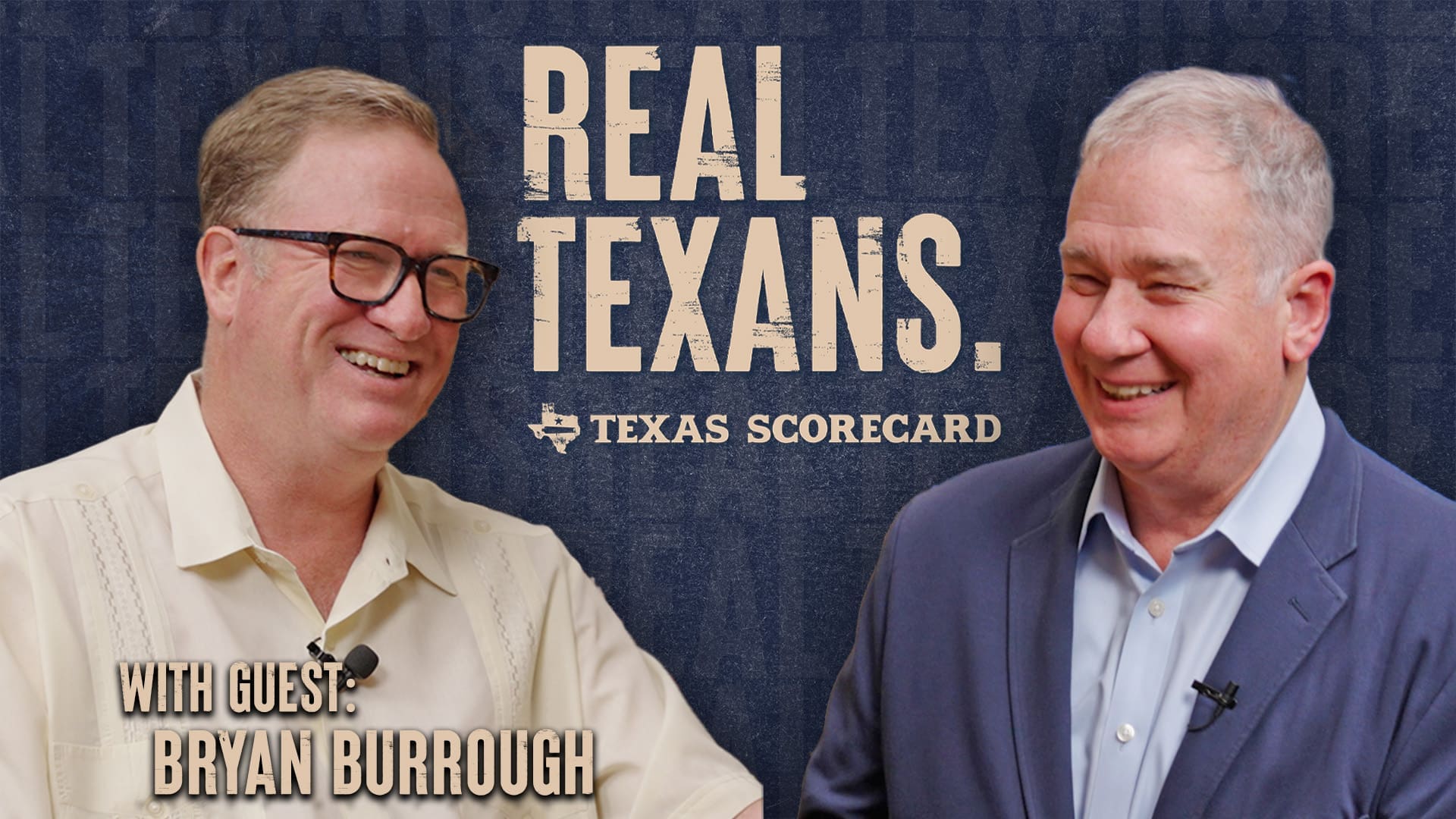Throughout Operation Lone Star, allegations of sexual assault, suicide, safety issues, and hardship requests plagued the Texas Military Department. Rather than open the door and allow these issues to be brought to light, the state military repeatedly fought all requests for records of these incidents. Without a fully transparent investigation by the Texas Legislature, questions will remain about the state military’s trustworthiness.
It is often said that sunshine is the best disinfectant. If this is true, why do government agencies and public servants fight to remain in darkness?
Concern for national security is often abused as an excuse to shield from accountability and transparency. Certainly, in situations like the Allied invasion of Nazi-occupied France, or U.S. Gen. Douglas MacArthur’s surprise operation to save South Korea during the Korean War, arguments to temporarily withhold records pertaining to military actions seem prudent. Releasing such records could have resulted in Hitler’s war machine halting the liberation of Western Europe, or in all of Korea today being under Beijing’s boot.
However, too often national or state security concerns are abused when citizens demand accountability for bad actions or failures by their public servants.
In his book “Patton: A Genius For War” (page 740), author Carlo D’Este writes of General George Patton’s recollection of a meeting Supreme Allied Commander Dwight Eisenhower held with Patton, other generals, and air officers after Nazi Germany’s surrender.
“General Eisenhower talked to us very confidentially on the necessity for solidarity in the event that any of us are called before a Congressional Committee. … He then made a speech which had to me the symptoms of political aspirations, on cooperation with the British, Russians, and the Chinese, but particularly with the British,” Patton wrote. “It is my opinion that this talking cooperation is for the purpose of covering up probable criticism of strategical blunders which [Eisenhower] unquestionably committed during the campaign.”
All Patton is recorded to have told his staff is: “Eisenhower is running for President.” While D’Este doubts the veracity of Patton’s account, cover-ups to save face are nothing new.
For example, in 2013 after the meltdowns of the Fukushima nuclear reactors in Japan, the Japanese government revised its National Security Law. The net effect of the changes meant punishments for whistleblowers and journalists. “The secrecy act, sharply criticized by the Japanese Federation of Bar Associations, is a shameless act of buttoned-up totalitarianism at the very moment when citizens need and in fact require transparency,” wrote Robert Hunziker.
Throughout Texas Scorecard’s investigation of the Texas Military Department (TMD), they’ve thrown up stone walls in attempts to block citizens from learning more about alleged problems within the military they fund. Repeatedly, TMD would appeal Texas Scorecard’s open records requests to Attorney General Ken Paxton. Multiple times, Paxton would order TMD to release the records.
“Taxpayers should absolutely demand accountability and increased transparency regarding how their tax money is spent throughout every agency and governmental entity in Texas,” Jeramy Kitchen, executive director of Texans for Fiscal Responsibility, told Texas Scorecard. “As a part of our Republic form of government, the obligation of accountability falls at the feet of those who choose to participate in it. TFR remains concerned going into the next legislative session that lawmakers will continue to appropriate tax money without also demanding realistic metrics for success.”
Sexual Harassment & Sexual Assault
As previously reported by Texas Scorecard, an undercover recording of a January 14, 2022, Texas military town hall revealed that there were serious concerns of sexual harassment or sexual assault occurring during Operation Lone Star. “Sexual harassment, sexual assault—never, never, never acceptable in any of our formation,” Sgt. Maj. Petty said in the recording. “We don’t try to cover it up.”
On January 26, Texas Scorecard sent an open records request to the Texas Military Department. We asked for records from as far back as March 1, 2021, regarding all sexual assault and/or sexual harassment grievances, complaints, and reports involving soldiers assigned to Operation Lone Star. The Texas Military Department delivered 30 pages of records in response, but they didn’t hand them over easily.
They appealed the request to Attorney General Ken Paxton (R), claiming the records were “excepted from disclosure.” In their arguments to the AG’s office, TMD pointed to multiple state laws, including parts that encompass sections of the Texas Homeland Security Act. One of the sections states “information is confidential” if it’s purpose is “preventing, detecting, responding to, or investigating an act of terrorism or related criminal activity.”
The Texas Military Department made rather interesting arguments to block transparency, pointing to different parts of state law. But on May 2, 2022, the AG’s office slapped most of these down. They found that only “some” of the requested information should be withheld, and stated the Texas Military Department “failed to demonstrate the remaining information relates to staffing requirements or a tactical plan of an emergency response provider or relates to an assessment” whose purpose is “preventing, detecting, or investigating an act of terrorism or related criminal activity.” Kathy McWethy of the AG’s Office wrote TMD “must release the remaining information.”
TMD tried pointing to state law that is meant to “protect advice, opinion, and recommendation in the decisional process and to encourage open and frank discussion in the deliberative process.” The AG’s Office replied that that, since 1993, they’ve determined this applies to policymaking, and that doesn’t include “internal administrative or personnel matters.” “You have failed to demonstrate the remaining information at issue pertains to policymaking matters,” McWethy shot back.
The 30 pages of records of sexual assault and/or sexual harassment grievances, complaints, and/or reports involving soldiers assigned to Operation Lone Star that Texas Military Department delivered has all names and personal identifiable information redacted, per the orders of the Attorney General’s Office.
One December 17, 2021, incident on Highway 90 toward Bracketville, Texas, appears to have been redacted almost entirely.
Multiple individuals, females and males, filed complaints on November 16, 2021, about a “hands-on training” session of handcuffing that occurred November 6.
In one account of this incident, a male soldier practiced handcuffing another. The arrestee, while kneeling, said to the arrestor, “Tell me what else you want me to do, daddy.” The complainant also wrote that he witnessed this same individual call others Spanish pejoratives “on multiple occasions throughout the training. Calling these PFCs those names is not a part of the training.” The complainant added that he believes the trainer’s “civilian job is a school resource officer,” adding that he believed “given the outcome of this investigation, his leadership should be made aware due to him being around minors.” A female who also filed a complaint on this incident wrote that it “made us all very uncomfortable.”
All complainants signed the form, which states that submitting “a false EO complaint is punishable by [the Uniform Code of Military Justice].” The forms were marked as received on November 29. Nothing is recorded in the section of the complaints marked “Results of Investigation.”
There were more complaints of impropriety during these training sessions.
A complaint filed that same day, by a male, is regarding a November 6 training that was led by the Texas Department of Public Safety. “I witnessed [REDACTED] hands on soldier without asking for consent. It shocked myself and others around me because where he place[d] his hands on [REDACTED], he placed them where we were not trained by DPS officers to place our hands.” The complainant requested “the highest possible punishment” be given out. “If it was active duty, he would be out of the army,” the complainant wrote.
More sexual harassment complaints followed.
One complaint on the week of Christmas 2021 reads that a “transgender staff member identifying as a woman” claimed his crotch was grabbed when hugged by another man.
An undated written complaint contains reports of a female soldier being told, “Don’t get pregnant, I need you to keep working.” The complaint continues, “Female soldiers complaint about improper hand placement [REDACTED] used while conducting the LEO training. Soldier told me that she felt uncomfortable [REDACTED] touched her breasts.” The report states the alleged offender was “corrected by soldiers,” and yet “he continued to use inappropriate words and handle placement on soldiers.”
Another incident is particularly troubling.
On January 17, 2022, in a sworn statement a complaint filed for an event that occurred in November 2021, the complainant’s platoon was loading and unloading “things,” and “[t]he temperature was in the 90’s, so my platoon decided to downgrade and take our OCP tops off,” the complainant wrote. “I was approached by [REDACTED]. He made a comment saying how he liked that ‘they’ were pierced. At first I had no idea what he was referring to as ‘they.’ Then he proceeds to say he was talking about my breast.” Later, the complainant wrote that this individual said “he’s a breast man.”
That same day, a sworn statement was filed about a January 6 incident at Camp Warhorse. The complainant (possibly female) wrote that at the end of a three-person meeting about “squad leader duties,” the complainant was given a black notebook that read, “You made my day yesterday.” The complainant said the writer “verbally says that the shirt I was wearing made my breast[s] stand out and look nice. He mentions how breast[s] are his weakness.” The complainant wrote this had all been said in the presence of the third person in the meeting.
Again, all personally identifiable information has been redacted from these 30 pages of records. In this sworn statement, the sex of the complainant is not given but is likely to be female based on descriptions of the incident. Later in the sworn statement, a January 13 conversation is recalled where the complainant tells someone they are going to file a report against the man alleged to have sexually harassed her.
“I hope you have the proof to back up what you are saying up,” she reportedly was told. Later, she said she was told “[REDACTED] wanted to speak to me.” The complainant claims that in a phone conversation about the incident she wished to report, she was told she should have been wearing a bra. She stated, “I was wearing a sports bra on both occasions.”
Her story got worse from there.
Suffering
The complainant asked a female NCO to listen in on that phone conversation. That NCO filed a complaint of her own, and her retelling of events is more shocking. According to the NCO, she found the original complainant crying “in November 2021,” and was told about the incident where the inappropriate comment about her pierced nipple was made. The NCO wanted to get involved, but the complainant “said she could handle it.” Weeks later, the complainant was moved to the NCO’s platoon, only to later be moved back. As time went on, the complainant confided to the NCO that she “feels that she is singled out by her [REDACTED] and [REDACTED].” The NCO wrote that despite ongoing encouragement for the complainant to get help, she refused. When the NCO tried to investigate the matter, she was told the complainant “has a drinking problem and is nothing but a problem soldier.”
“I then said what have you done to help her and they just shrugged me off.” The NCO then tried connecting the complainant with the “behavioral health specialist on base,” but the complainant said she was already seeing a chaplain.
The problem continued to deteriorate. On January 13, 2022, the NCO got a call that apparently someone had threatened to cut the complainant’s throat. The name of the individual who is alleged to have made the threat was redacted by the Texas Military Department. The NCO “rushed over to find them and [REDACTED] was crying again.” Upon this reunion, the NCO wrote that the complainant shared more with her. “[REDACTED] start to tell her how she needs to to wear a bra and that even though he enjoys it she was dressed inappropriate[ly,] but continued to maintain how he enjoyed the view.”
This is what led to the NCO informing “the commander” about the situation. According to this report, it appears not much could be done unless there was physical touching involved.
From what can be deduced from the redacted records, it appears the male that had sexually harassed the complainant later asked to speak with her by phone. He had a third party with him in the conversation, so the complainant brought the NCO with her. The complainant informed the unnamed male on the other line of the NCO’s presence when asked. He then “started questioning [the complainant] and asking why she wanted to leave,” as well as file a complaint against him. He then told her she “should of[sic] been wearing a bra.”
The back and forth apparently got so heated that the NCO took control of the situation, and told the unnamed male not to contact the complainant. The redacted records appear to indicate that the unnamed male said someone in authority had informed him about the complainant wanting to file a report. “That’s when I got even more upset cause this soldier should of[sic] been able to trust her leadership and not been questioned by the person she was filing against,” the NCO wrote.
On December 12 of this year, Texas Scorecard asked the Texas Military Department for comments about this and other incidents in the 30 pages of records of sexual assault and/or sexual harassment grievances, complaints, and/or reports involving soldiers assigned to Operation Lone Star. TMD finally responded on December 20, five days after this article was published.
“The Texas National Guard takes all allegations of sexual harassment and sexual assault seriously. The Texas National Guard provides specially trained professionals at all levels to ensure victims are provided attention and care. All our service members are trained to respond and report inappropriate workplace conduct,” TMD’s Public Affairs Office stated. “Our leaders are trained to ensure all allegations are appropriately and rigorously investigated by the appropriate authorities, whether military or civilian. Due to privacy concerns, we cannot discuss specific details for these cases mentioned. We can tell you that in instances where allegations were investigated and substantiated the command took immediate appropriate disciplinary action to ensure the safety of our service members.”
Death, Suicide, and Safety Issues
Reports of suicides during Operation Lone Star have continued to trickle throughout the operation. On October 4, a source provided Texas Scorecard with a report of another suicide that very morning.

On January 26, 2022, Texas Scorecard sent an open records request to the Texas Military Department for reports of suicide and safety issues involving forces assigned to Operation Lone Star since March 1, 2021.
Again, TMD appealed our request to Attorney General Ken Paxton (R). On May 11, the AG’s office communicated “we require additional time” to address the situation.
Finally, 27 pages of redacted records were released months later. Very little remained unredacted by the Texas Military Department in these records.
On October 26, 2021, a 24-year-old male soldier on OLS duty killed a 32-year-old male soldier.
On January 11, 2022, a report was filed at Camp Zapata where a soldier confessed his handgun went off while he “attempted to disassemble” it “for cleaning.” The soldier wrote, “Nobody was harmed due to my negligence.”
Further in the records, it shows a day earlier it was reported that a soldier “negligently discharged his Barretta [sic] pistol in the trailers.”
“Upon arrival [REDACTED] briefed me on the incident,” the complainant wrote, going on to describe the investigation he undertook where they found the shell casing and “expended round.” He added, “No injuries were found.”
As previously reported by Texas Scorecard, there appears to have been a lack of proper training of soldiers during Operation Lone Star.
Multiple car accidents are included in this report as well. Most are very minor, but one on February 10, 2022, is not. In this incident, a rental van carrying a group of soldiers on route to Fort Sam Houston to “purchase items from Military Clothing” collided with an 18 wheeler “while merging to exit the highway.” Both the van and 18 wheeler were merging at the same time. One soldier was sent to BAMC for a head injury, while four others requested to be medically evaluated. “No citations issued for the collision,” the report reads.
Hardship Requests
Another issue Texas Scorecard investigated was that of Hardship Requests. These are requests by members of the Texas National Guard to be exempt from Operation Lone Star due to hardships such as career, family, financial issues, and more. The intention was to discover if these requests were being denied and why.
On January 26, Texas Scorecard sent an open records request to the Texas Military Department, requesting “records showing all Hardship Requests received, approved, and denied involving forces assigned to Operation Lone Star.” The time frame of the request was March 1, 2021, to January 26, 2022.
Again, the Texas Military Department appealed this request to Attorney General Paxton. TMD argued that under state law, the information was exempt from disclosure, citing laws from governing law enforcement to the deliberative process of policy making. The AG’s reply found certain information TMD could withhold, like Texas soldiers’ personal identification, but found the rest the department had “failed to demonstrate” how exemptions in the law applied. Thus, TMD was ordered to release certain information, given permission to withhold information the AG had marked, and given the choice whether or not to withhold the rest.
The records TMD released were four pages of Hardship Requests they had received from those assigned to Operation Lone Star. The date range of requests received are November 4, 2021, to as late as January 11, 2022. A slew of dates on the fourth page were redacted.
The type of hardships listed in the records are divided into various categories, including Health, Family, or Career Hardship, and Military or Civilian Education. There’s also an “Other” category that contains items such as “Approved Retirement,” attending the Texas Department of Criminal Justice Academy, approved reconsiderations asked of military decisions or policy (RECLAMA), or in one case being detained by the FBI.
The records show a large number of Hardship Requests were approved, while 22 were denied or disapproved. Among these denied or disapproved Hardship Requests were Financial, Career, Family, Health, or Property Hardships. There were also cases of Civilian Education requests denied.
Pages 2 and 3 of these records show a slew of Hardship Requests that appear unresolved within the timeframe of the request. Some appear to be notes of administrative issues, like being on the wrong payroll, but there is one item that notes “SM WILL NOT SUPPORT OLS.” Multiple entries exist of soldiers reportedly not entering the Joint Operations Area (JOA). Another states only “Misconduct.”
Also on January 26, Texas Scorecard requested communications between Maj. Gen. Charles Aris (then commander of the 36th Infantry Division) and then-Texas Adjutant General Tracy Norris involving Operation Lone Star issues.
Months later, 44 pages of records were delivered. Again, many of them were redacted.
What wasn’t redacted was a hardship request contained in these communications. A soldier called up for Operation Lone Star would be paid “nearly $6500 per month less than he received ordinarily from his full-time civilian employer.” Namely, Shell Oil, which according to this report would not cover the pay differential for this soldier under their “military leave program.”
Because certain information in these records could reveal the identity of the soldier in question, Texas Scorecard is withholding all but the official hardship report.

Source: Texas Military Department
“This significant loss is causing [REDACTED] to withdraw money from savings simply to cover his home mortgage payment and … his family’s basic living expenses. If activated he could potentially lose his home and his wife and 2 children will have no where to go.” The soldier’s wife had also gone on leave from her job “to care for their toddler and ten-year old” in her husband’s absence.
All this for a soldier the report states had “proactively volunteered for all missions in the last 2 years” and was their “go-to” guy.
Texas Scorecard sent an inquiry to Shell Oil U.S. on this matter and asked why Operation Lone Star was exempt from their “military leave program,” and how many of their employees were affected. No response was received before publication.
On the document, the brigade commander wrote “need to realize it would be a setback for this soldier.” Whoever reviewed this document indicated that he or she concurred.
Conclusion
Serious issues that came to light from Operation Lone Star illustrate that the Texas Military Department had fallen into a state of disrepair. In such matters, transparency is crucial for correction, yet the state agency sought to be as opaque as possible to the taxpayers funding it. From Maj. Gen. Norris, who reportedly threatened soldiers to stop whistleblowing, to the state agency fighting open records requests submitted under state law, TMD appeared more concerned with saving face than saving soldiers.
Unless there is serious inquiry into this by the Texas Legislature, with systems put in place, questions may remain as to how much faith Texans can have in their state’s military should Gov. Greg Abbott deploy them to stop illegal border crossings.
This article was updated with the Texas Military Department’s response to Texas Scorecard’s press inquiry. TMD replied five days after this article was published,





